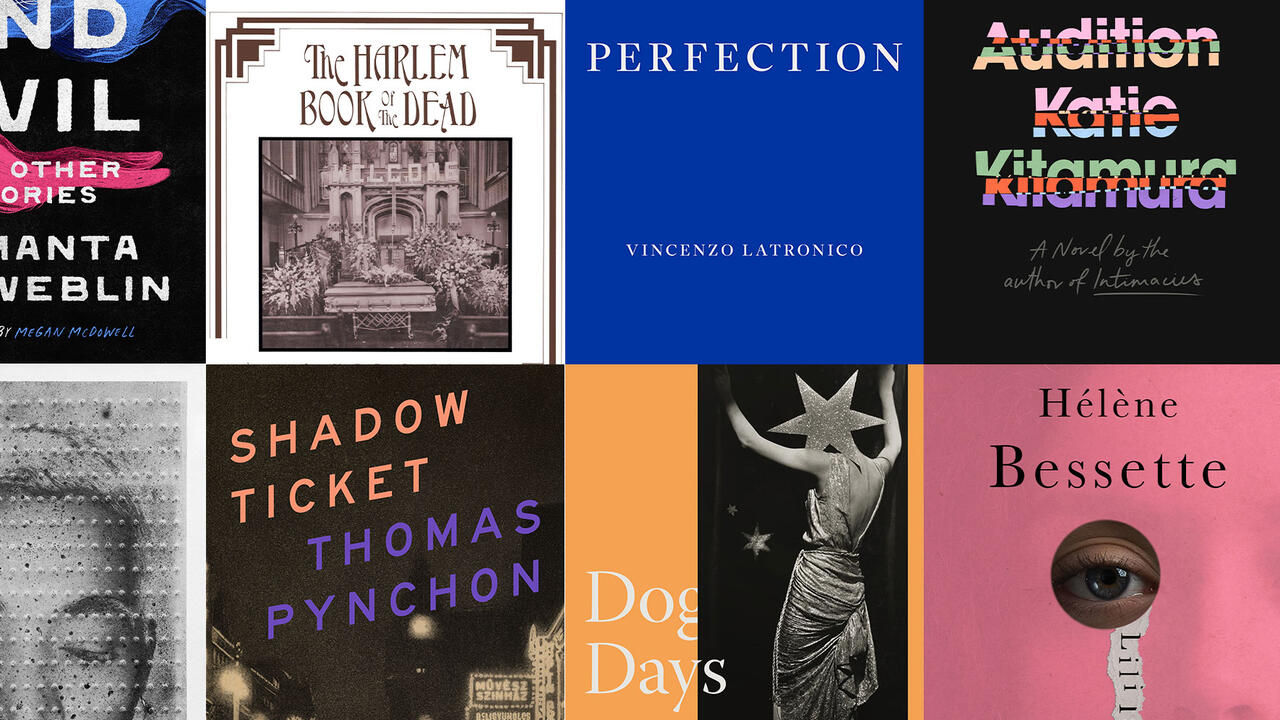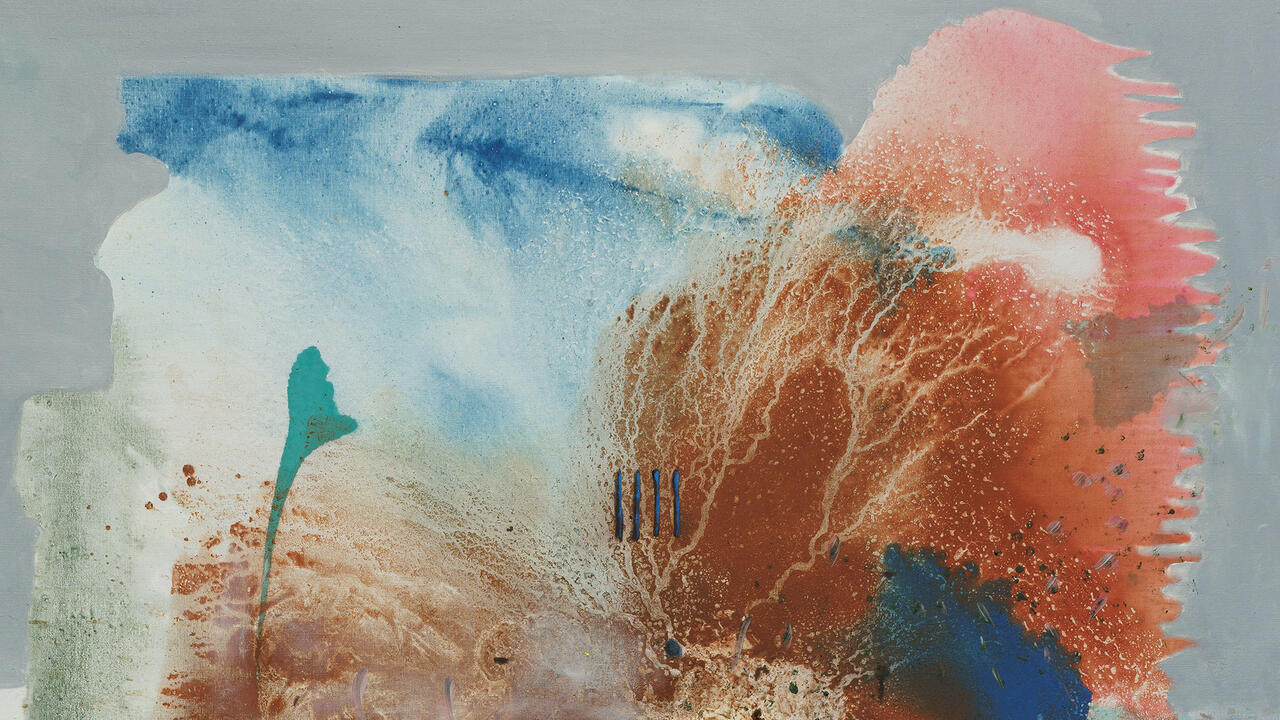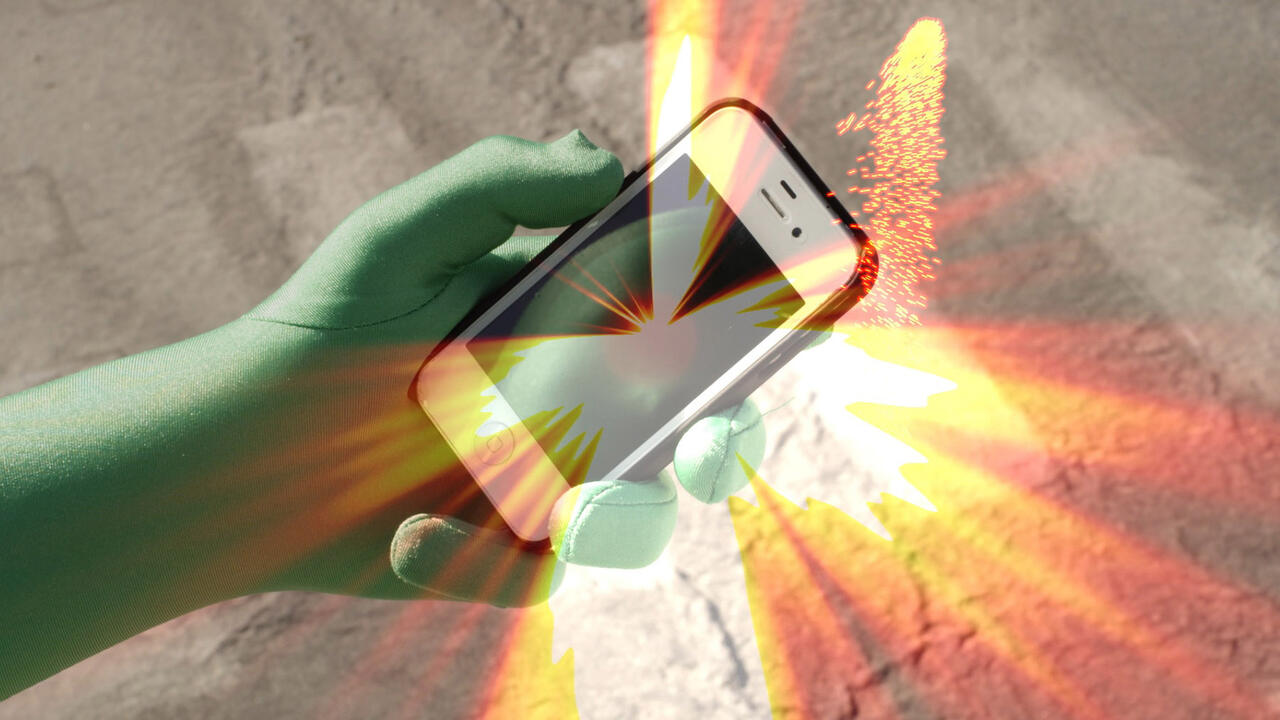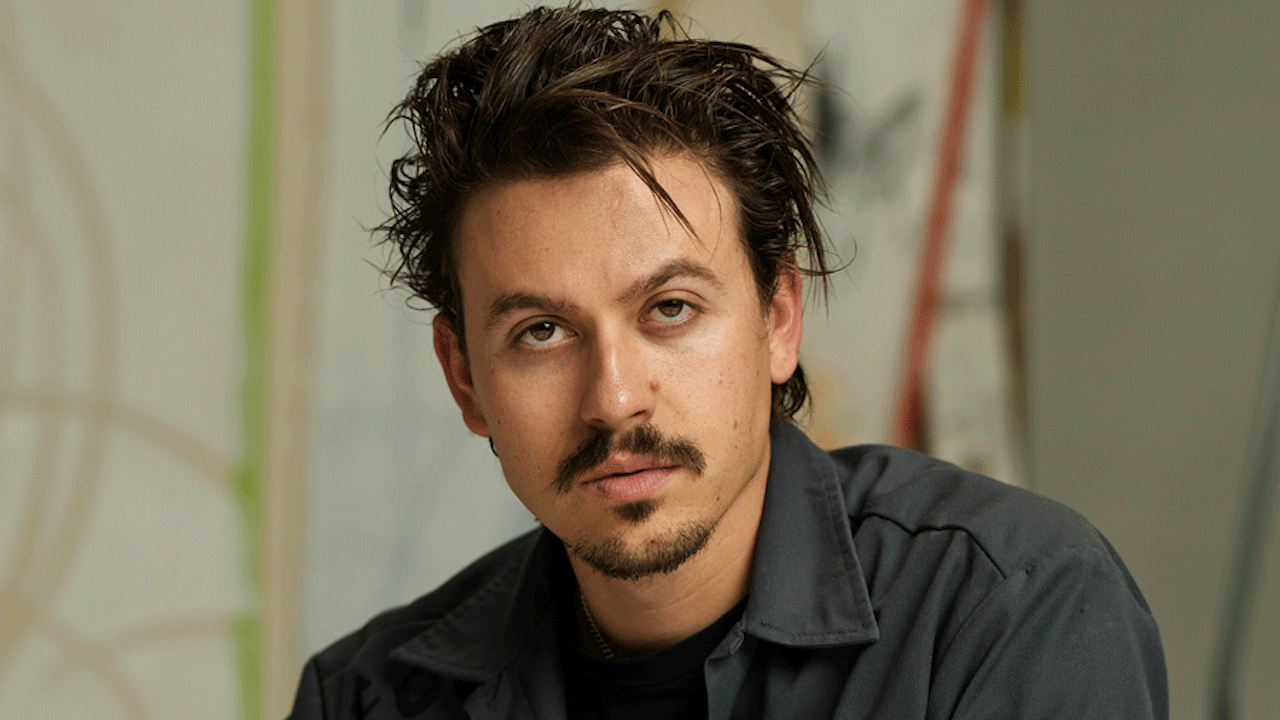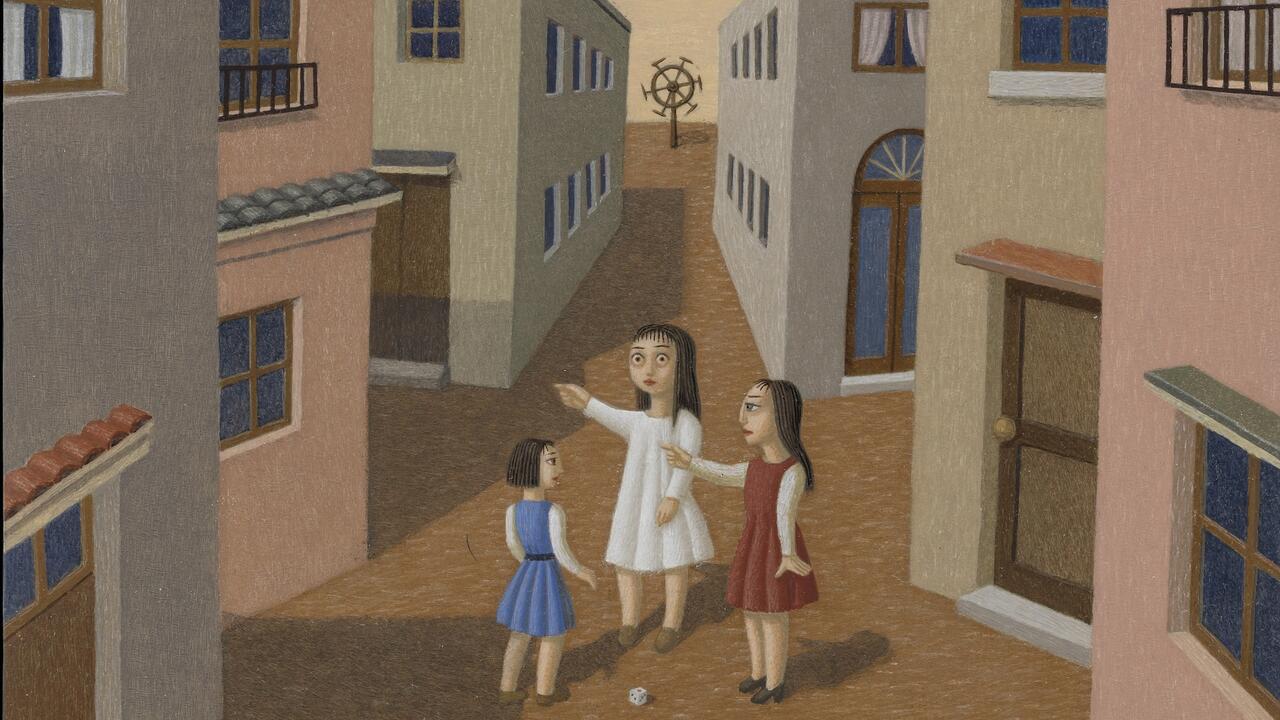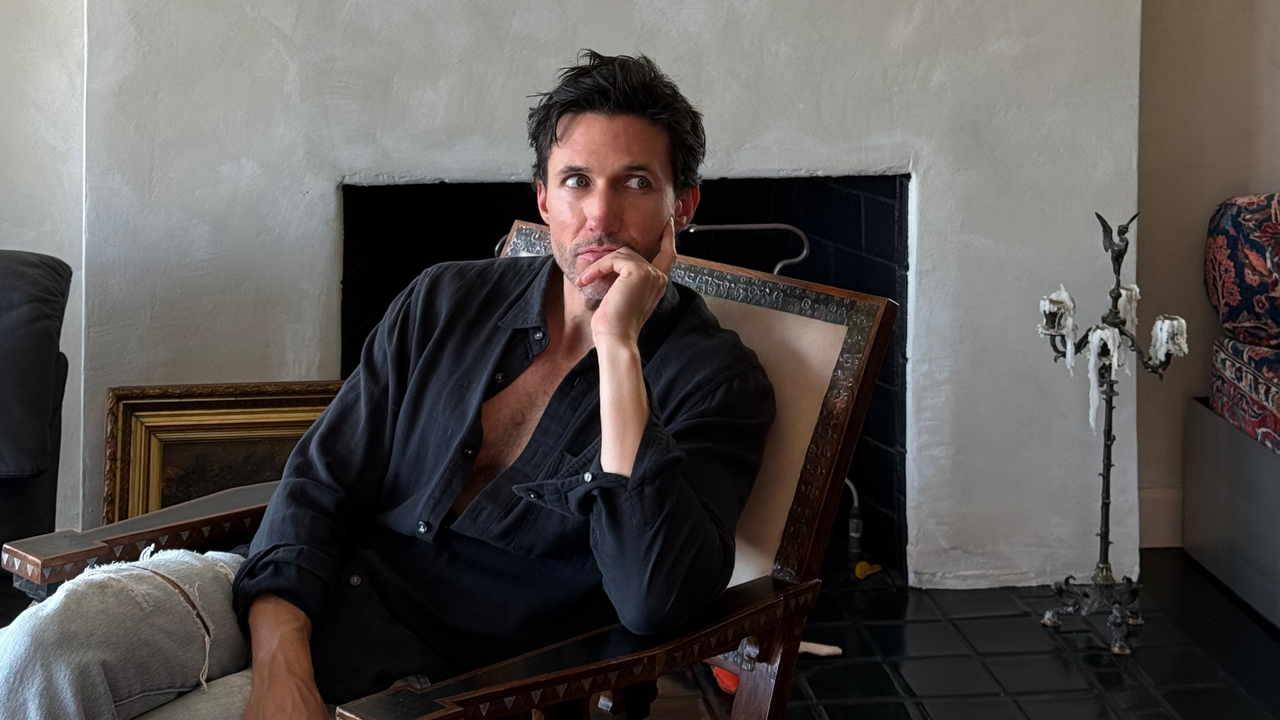Nuts in Bali
Spalding Gray
Spalding Gray
When Spalding Gray gets worried, he barks like a dog. When things get out of control, he grunts, moans or runs away. He jumps in a taxi or calls a travel agent or turns his doorknob three times every time he touches it. Or he closes his eyes and imagines he's in Bali. That's where he usually wishes he was. Spalding Gray thinks of Bali as a sort of metaphysical healing utopia: Lourdes, Walden and Shangri-La all wrapped up in one. That's where he's heading now, by way of London, to investigate psychic surgeons for Condé Nast's Traveler. 'I'll have them operate on me, if I dare. But all that blood. I don't know if I could take it. They just put their hands right through your skin and pull out the sickness.' His face is the same colour as his surname.
Spalding Gray's books and the stream-of-consciousness monologue-performance-pieces that they're put together from have made him a cult figure in the American art world. From Lower Manhattan, where he started doing performance art in 1969 along with the Wooster Group founder, Elizabeth LeCompte, to the Los Angeles filmmaking machine that has swallowed him up into The Killing Fields, True Stories, Clara's Heart and Beaches, his acting and writing have come to epitomise the complex and repressed WASP mentality in a way that makes Ordinary People look like a functional family.
What unifies Gray's own work - Sex and Death to Age 14, Swimming to Cambodia, Monster in a Box, and Terrors of Pleasure - is the adventure into guilt and neurosis. In the introduction to Monster in a Box, he writes that when he performed in Washington DC, a representative of the National Foundation for Mental Health called him. She said, 'What we'd like to propose is that you become our national spokesman... We've never heard anyone so articulate about their mental illness.' In each monologue, Gray is involved in a constant battle with his id, which throws tantrums and threatens to ruin his career, love life and finances. After a number of skirmishes, each book concludes with a sort of triumph of superego, that saves the day. Until the next book. His latest, Impossible Vacation, a novel based on his childhood and youth, is about his mother's suicide and its indelible affect on him. While his mother's and his own forays into insanity are often in his monologues, Impossible Vacation drops the flippant, satirical cool of the performances for a painfully honest narrator, Brewster North (named after a desolate train station in upstate New York near where Gray wrote the book), who can't seem to keep from exposing himself.
Dropping on to the cream-coloured sofa in his softly-lit hotel suite, Gray looks as vulnerable as his narrator. His T-shirt and sweat pants hang off his long, thin frame. 'I shouldn't have come here. I knew it was the wrong thing to do. At this point in my life. But the tour was already set up...' Rather than sinking into the cushions, Gray is huddled under a nylon jacket that he continually readjusts over his knees. He hasn't managed to see much of London this trip. 'I'm agoraphobic,' he explains. He doesn't get out much. So the Impossible Vacation tour has turned into just that, partly due to the problems in his personal life. What problems? 'Actually, it's a secret. The odd thing is that I've always made monologues out of what's happening in my life and I can't make one out of this. It's too complicated. It involves too many people. It would read like a soap opera.' So what's new? 'It's a real me creating a whole lot of drama and confusion and mix-ups. That's part of why I've been running away,' he explains further.
To top it all off, he's not pleased with the reviews that the novel's been getting. 'Critics have said it reads like a monologue. I don't think it's a monologue. It's much more lyrical and goes into more depth and pain and shadow. My monologues are glib and entertaining. And rolling. And not letting the audience down. I have a fear of that. It's always been really hard for me to sit in pain in front of an audience. So I think it's a book.'
Another difference is the process involved in creating a written work. With performance pieces, Gray speaks into a tape recorder. 'I start speaking my memory. Memory is the structure, the way in which I remember it. I record it and listen back, but I never write it. Then I begin to see how things would work better in different places, or if they were slightly fictionalised or I used hyperbole. That's the art. But the art is only laid on top of the original organic structure that comes from memory. Then there's a refinement and then there's a polished performance in say, six months time. If it's working and I like it, I go for a couple of years and make a good living with it. Those books come after the monologues are two years old and in great shape. Then I take a transcript and fill in the things that are in my hand gestures or in innuendo.' The result of this process was Swimming to Cambodia, also a film of the book of the performance, and all the others. Impossible Vacation, on the other hand, 'I wrote long-hand over a six-year period. I wrote 1900 pages, four to five hours a day when I was working. Then I'd rewrite. Make all the corrections in red ink and read it into a tape recorder to give it a flow. I'd change words, improvise, change whole phrases. Then I'd give it to a transcriber. That cost about $3,000. But now I've got 800 pages transcribed and done, I'm a fool not to go for the second part.' Impossible Vacation is only half of the 1900 pages Gray wrote. When Gary Finsketjon, editor at Alfred Knopf, took on the tome, he simply cut it in two and told Gray to write a second book. But, Gray apologises, 'I just haven't taken the time to shop it around. I've been very fractured recently. Not focused on any one thing. And my loft is just filled with papers. I never get out from under the letters and papers and bills. I'm very retentive. I don't know what it is that piles up. Scripts. Wonderful fan mail that I mean to return. Things I should send money to, like Amnesty International or Greenpeace. Maybe it could save my concentration and get me going again if I did a sequel to the book. I'm going to call it Monkey Mind, because it's about the character having too many possibilities, too many voices calling him in too many different directions when he tries to travel and get away to Bali.'
In the second book, Brewster North does finally make it to Bali, where he's been trying to go since his uncle presented him with a Balinese monkey mask when he was a little boy. Brewster North watches the space shuttle crash on television from a festival in Australia. 'That always bogs me up. One of my favourite sections is the description of the Challenger exploding on television in Adelaide, where the character, a relatively successful writer, has been invited to come and read from Impossible Vacation. Oh God, how am I going to do that? Because that would be in '87 or '86. That's where it gets mixed up.' Also in Australia, Spalding - or Brewster - meets a young woman. 'She was very wealthy and her mother asked me if I wanted to give her a baby. And I said, "Yes." I had this fantasy of leaving, jumping ship, doing nothing in Australia, but raising kids. She has two beautiful sons now. She sent me pictures of them. They're living in a tree house, behind this mansion with a swimming pool. Her name was Rich, by the way. Talk about what's-in-a-name. That's why whenever I have to change names I get so aggravated. Because every name is speaking to me, like a code. Her husband's name is Adam Long. I don't mean to reduce people to symbols, but I'm amazed with the names of the people I get involved with. The affair I had that broke up my relationship with Liz LeCompte was with a woman called Randy Feign. Which means to pretend to be horny. How do you replace that?'
In the sequel, Brewster may or may not be able to overcome his drinking habits - beer is his best friend, hence the name 'Brewster' - and he probably doesn't solve his obsession with his mother and his inability to take a vacation from any of those things. Neither did Spalding. 'So, of course, as soon as I got to Bali all I could think of was that mother and daughter. The daughter wanted to go on a camel trek into the desert with me. But I didn't ever follow it up. In Bali, I did this healing rite, a funeral for my mother. And I thought, Could I now have a vacation? The healer said, "Yes." I had met this really eccentric English school teacher. Bright blue eyes, beautiful. I rented a motorcycle and we ran off. It was the most exciting thing I had ever done. Suddenly, I'm a free spirit. She's on the back, I've got nothing on but my red shorts and we're going to a bungalow on an empty beach, paradise. But the darkness comes so fast in Bali. It was suddenly black. I'm very tense because I can't see and there are people walking along the edge of the road. I didn't take the time to put on a shirt and I'm sweating. And within one hour, I have the worst cold of my life. When we get there, I'm a dead man. I just lay on the beach, that paradise beach, watching her juggle. She had juggling balls. Naked to the waist, just the bottom of a bikini, in front of all the fishing people. And I'm lying in the sand, absent of libido. The guilt was still there.'
What the endless guilt did do was land Spalding Gray his favourite role to date in the upcoming film, King of the Hill. Steven Soderbergh, director of Sex, Lies and Videotape, called him up and took him out to lunch. 'He said, "You're my first choice. How does it feel to be a first choice?" I said, "Great. I've never been a first choice for anyone." The role is of Mr Mungo, a man who is ruled by regret. Steven said, "I read Impossible Vacation and I figured you were ruled by regret." I got cast by him reading the novel. I mean, he'd seen Swimming to Cambodia about eight times, so he was familiar with my work. Mr Mungo's a small, but very powerful role of a man in a flophouse in 1929 who kills himself. That film was the most exciting thing I've worked on since The Killing Fields. It's about a boy growing up in the depression in St. Louis and how he survives by hustling. It's based on an autobiography by A.E. Hodgner.'
The film also offered Spalding a chance to confront his ghosts. Unlike his mother, he committed suicide on celluloid and got to return from the grave. 'It was a very strong event for me because I slit my wrists. It was gruesome to go through the make-up: putting it on took two hours and then they had the blood coming down from the sink and my face in the sink and blood and water going all the way across the floor. But it didn't feel real enough for me. So I did a strange thing. I asked Steven if I could get an eight o'clock plane. And he said, "We'll see if we're through." I said, "Can't you have a stand-in for my body when they carry it out under a sheet?" He said, "You wouldn't want that, Spalding. You want to be in the film, don't you?" So I said, "All right, but will you let me go back to the hotel and check out so my bags will be ready?" I'm completely pale, with 1929 braces - my face is white as ash and there are gashes here (points to his wrists) and dried blood running down my hands. He says yes and I'm amazed. The hotel is a five minute walk. I leave the set and walk down the street and no one notices me. Except this one bum who's begging for money. Every time I walk by him, he turns in a circle and looks the other way. I walked by him six times. I can't believe it.
'I get to the hotel desk and they ask, "How's the film going Mr Gray?" I go like this (holds up his wrists) and they go, "Oh gross!" They know I'm an actor so they just see it as make-up. Leaving the hotel, I'm thinking, I have to get an effect. It was a compulsion. So I walk into a drugstore and there was this woman, all alone, running the whole store, standing in the back on a little platform. I went in with my sleeves rolled up and I said (croaking), "Can you do anything for my wounds?"
'She turned and went, "Oh, oh my Lord." She was shaking all over. She came down from her platform and she said, "How ever did you do that?"
I said, "I slit my wrists." Then I saw what I was doing, it came to me and I said, "Oh my God. This is my mother and I'm getting back at her. I'm angry. This is really working it out." I apologised, but she was too stunned to understand what I was talking about. And I ran out. Then it became real for me. I had to make it real. I needed that woman's reaction.
'So I got halfway to the plane and I started going, "Unh," like I do when I start getting very nervous. Like when I was supposed to come here. That's always a sign. Like, DON'T DO IT. The driver was a very sweet young guy and he said, "You know, Spalding, I can take you back if you want to see the dailies." So I did. And I felt reborn. When I saw it on film, it was great. I mean, I was good. I'd thought I was overacting. Too stagey. But the pre-suicidal sadness in my eyes was incredible. A lot of it had to do with the fact that I was in hotel for a week before we shot. They held me captive, so I had that interior feeling. I don't know how it will turn out because Steven's adapted it, directed it and is editing it. He's doing the whole thing. In a smokehouse. On a farm.'
Unfortunately, neither the staged suicide, the Balinese rites, nor the writing of the novel have managed to exorcise Gray's obsessions. Impossible Vacation is dedicated to his mother, 'The Creator and the Destroyer,' and opens with a quote from William Kennedy's Ironweed about self-flagellation. Gray says, 'I shouldn't still be doing this. It wasn't a crime. I didn't drop my mother on the floor. But I did leave her. I knew she was about to kill herself. But has anything helped or have I just grown away from it?'
So what will he try next? After Bali, the second book and the monologue based on his secret domestic problems, Gray's latest idea is to go to Mexico, where he was when his mother committed suicide and where he had a vision of her engulfed by fire. 'I make these paranoid links around her. Now I have to return to Mexico, to triumph over Mexico. I'm a Proustian. I make associative links. It's such a domino chain of associations that I get exhausted and my being gets wiped away. I can't even look at a picture of Jerry Hall with her three children in a magazine. So that's next. To go to Mexico.' In the meantime, he'll suffer in his hotel room where the windows don't open. 'I have it in my contract. That I have to have windows that open. But they're painted shut. Maybe it would break the line of the hotel. I don't know. But that makes me nuts. They said they'd move me, but I said I'd try to adapt to it.'


